第17章 THE FIRST COUNTESS OF WESSEX(16)
The present meeting,which was to extend over two days,had opened its proceedings at the museum of the town whose buildings and environs were to be visited by the members.Lunch had ended,and the afternoon excursion had been about to be undertaken,when the rain came down in an obstinate spatter,which revealed no sign of cessation.As the members waited they grew chilly,although it was only autumn,and a fire was lighted,which threw a cheerful shine upon the varnished skulls,urns,penates,tesserae,costumes,coats of mail,weapons,and missals,animated the fossilized ichthyosaurus and iguanodon;while the dead eyes of the stuffed birds--those never-absent familiars in such collections,though murdered to extinction out of doors--flashed as they had flashed to the rising sun above the neighbouring moors on the fatal morning when the trigger was pulled which ended their little flight.It was then that the historian produced his manuscript,which he had prepared,he said,with a view to publication.His delivery of the story having concluded as aforesaid,the speaker expressed his hope that the constraint of the weather,and the paucity of more scientific papers,would excuse any inappropriateness in his subject.
Several members observed that a storm-bound club could not presume to be selective,and they were all very much obliged to him for such a curious chapter from the domestic histories of the county.
The President looked gloomily from the window at the descending rain,and broke a short silence by saying that though the Club had met,there seemed little probability of its being able to visit the objects of interest set down among the agenda.
The Treasurer observed that they had at least a roof over their heads;and they had also a second day before them.
A sentimental member,leaning back in his chair,declared that he was in no hurry to go out,and that nothing would please him so much as another county story,with or without manuscript.
The Colonel added that the subject should be a lady,like the former,to which a gentleman known as the Spark said 'Hear,hear!'
Though these had spoken in jest,a rural dean who was present observed blandly that there was no lack of materials.Many,indeed,were the legends and traditions of gentle and noble dames,renowned in times past in that part of England,whose actions and passions were now,but for men's memories,buried under the brief inscription on a tomb or an entry of dates in a dry pedigree.
Another member,an old surgeon,a somewhat grim though sociable personage,was quite of the speaker's opinion,and felt quite sure that the memory of the reverend gentleman must abound with such curious tales of fair dames,of their loves and hates,their joys and their misfortunes,their beauty and their fate.
The parson,a trifle confused,retorted that their friend the surgeon,the son of a surgeon,seemed to him,as a man who had seen much and heard more during the long course of his own and his father's practice,the member of all others most likely to be acquainted with such lore.
The bookworm,the Colonel,the historian,the Vice-president,the churchwarden,the two curates,the gentleman-tradesman,the sentimental member,the crimson maltster,the quiet gentleman,the man of family,the Spark,and several others,quite agreed,and begged that he would recall something of the kind.The old surgeon said that,though a meeting of the Mid-Wessex Field and Antiquarian Club was the last place at which he should have expected to be called upon in this way,he had no objection;and the parson said he would come next.The surgeon then reflected,and decided to relate the history of a lady named Barbara,who lived towards the end of the last century,apologizing for his tale as being perhaps a little too professional.The crimson maltster winked to the Spark at hearing the nature of the apology,and the surgeon began.